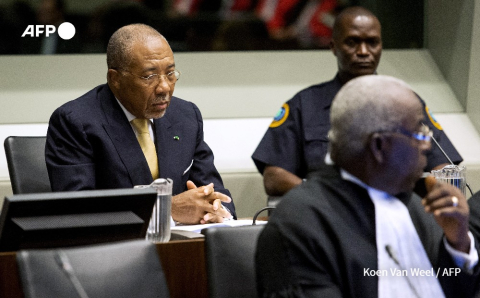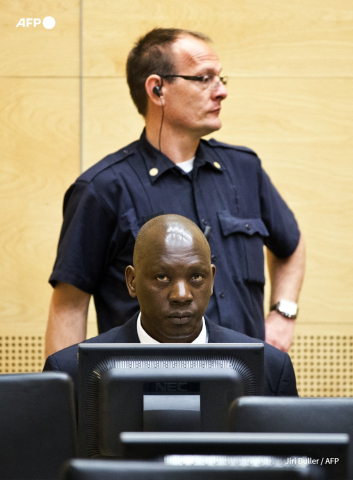Nuremberg trials set stage for international justice system

By Bénédicte REY
The Nuremberg trials laid the foundations for a global justice system and the International Criminal Court (ICC).
The first international criminal tribunal in history, Nuremberg created the notion of crimes against humanity, to which the UN quickly added the war crime of genocide.
The idea of punishing Nazi war criminals was launched in 1941 by British wartime leader Winston Churchill.
While some believed summary executions were the answer, the victorious Allies preferred the principle of a public, international trial, even before World War II ended.
They started from scratch, establishing indictments, a list of suspects, the composition of the court, and legal procedures.
The goal at Nuremberg was to be fair, and for its judgements to prevent new wars of aggression.
"The wrongs which we seek to condemn and punish have been so calculated, so malignant and so devastating that civilization can not tolerate their being ignored, because it can not survive their being repeated," Nuremberg chief prosecutor Robert Jackson said in his opening statement.
The trials, followed by those of Japanese war criminals in Tokyo from 1946-48, gave birth to hopes of a justice system that would prevail across national borders.

- Genocide becomes a crime -
In 1948, the UN General Assembly adopted the Convention on the Prevention and Punishment of the Crime of Genocide, which defined the crime of genocide for the first time.
Two years later the UN's international law commission produced the "Nuremberg principles", guidelines for determining what constitutes a war crime, based on the Nuremberg trials and verdicts. The principles state that perpetrators hold personal responsibility for their actions and cannot blame national institutions or governments, for example.
Progress on framing a universal justice system was halted for decades during the Cold War however, and it was only in 1993 that a nation's leaders again faced international justice, with the creation of the International Criminal Tribunal for the Former Yugoslavia (ICTY) in The Hague.
- International courts multiply -
In the years that followed four other "ad hoc" international tribunals were established.
They include the International Criminal Tribunal for Rwanda (1994) and the Special Court for Sierra Leone (2002) which handed down the first international judgement against a former head of state, Charles Taylor of Liberia.
The other two are the Extraordinary Chambers in the Courts of Cambodia (2006), which sentenced two top surviving Khmer Rouge leaders, and the UN-backed Special Tribunal for Lebanon (2007), the first international court mandated to judge crimes of terrorism.
- The ICC finally born -
In gestation since the end of World War II, the International Criminal Court (ICC) finally came into being in 2002.
Located in the Dutch city of The Hague, it is the first permanent tribunal with a mandate to charge defendants with war crimes, crimes against humanity and genocide.

In July 2012, the ICC issued its first sentence, condemning Congolese warlord Thomas Lubanga to 14 years in prison for using child soldiers in his rebel army.
Nevertheless the court cannot judge crimes committed before it was established, and its competence is limited.
Although the ICC is recognised by 122 countries, several major powers do not, including the United States, Russia, China and Israel.
In November 2016, Russia went further, saying it was formally withdrawing its signature to the tribunal's founding Rome Statute, and describing its work as "one-sided and inefficient".
The move came days after The Gambia formally notified the United Nations it was leaving the ICC, following in the footsteps of South Africa and Burundi.
The court has launched investigations in eight countries, all in Africa, for which it has been widely criticised: the Democratic Republic of Congo, Uganda, Sudan, the Central African Republic, Kenya, Libya, the Ivory Coast and Mali.
It has also opened preliminary probes in Afghanistan, Colombia, Georgia and Ukraine.
